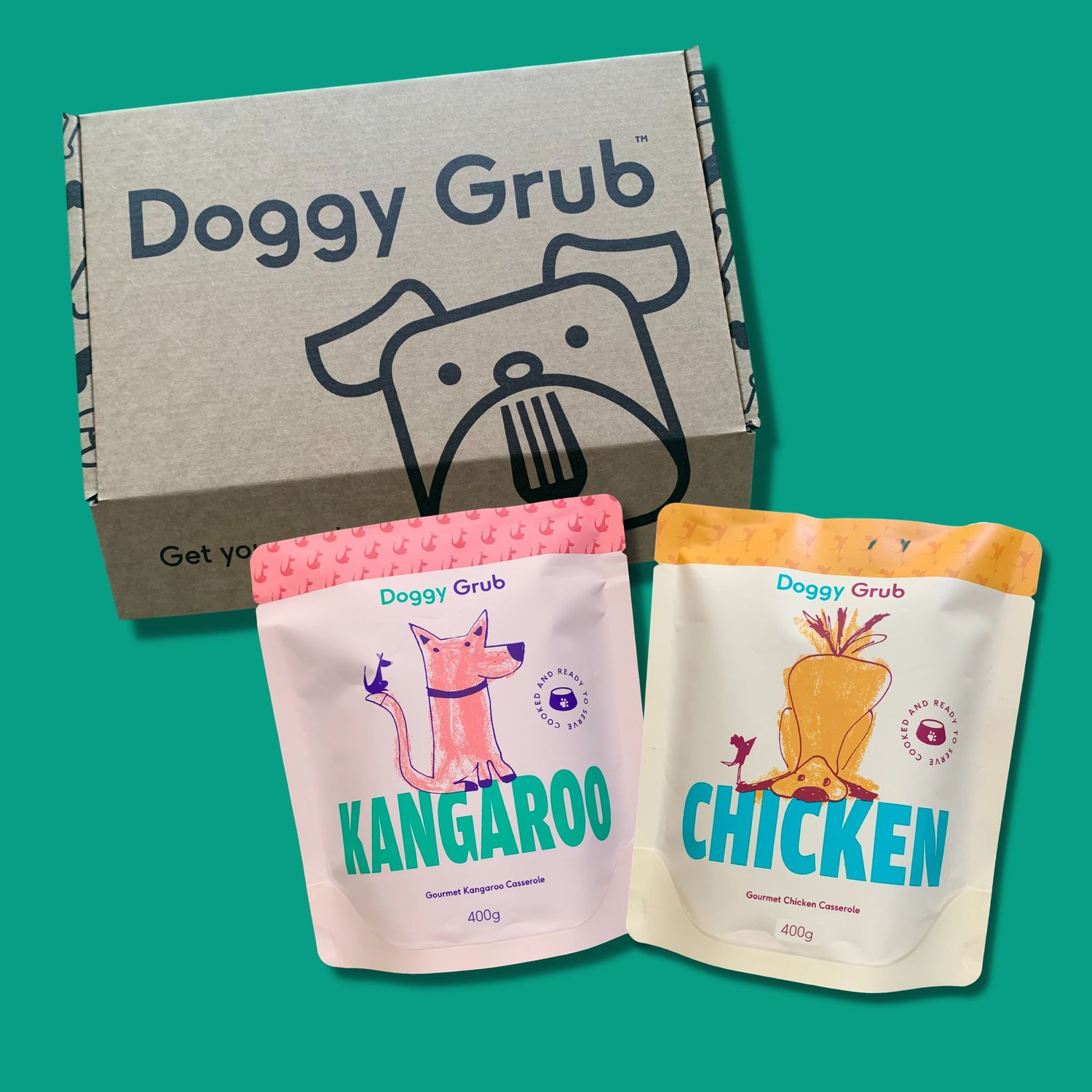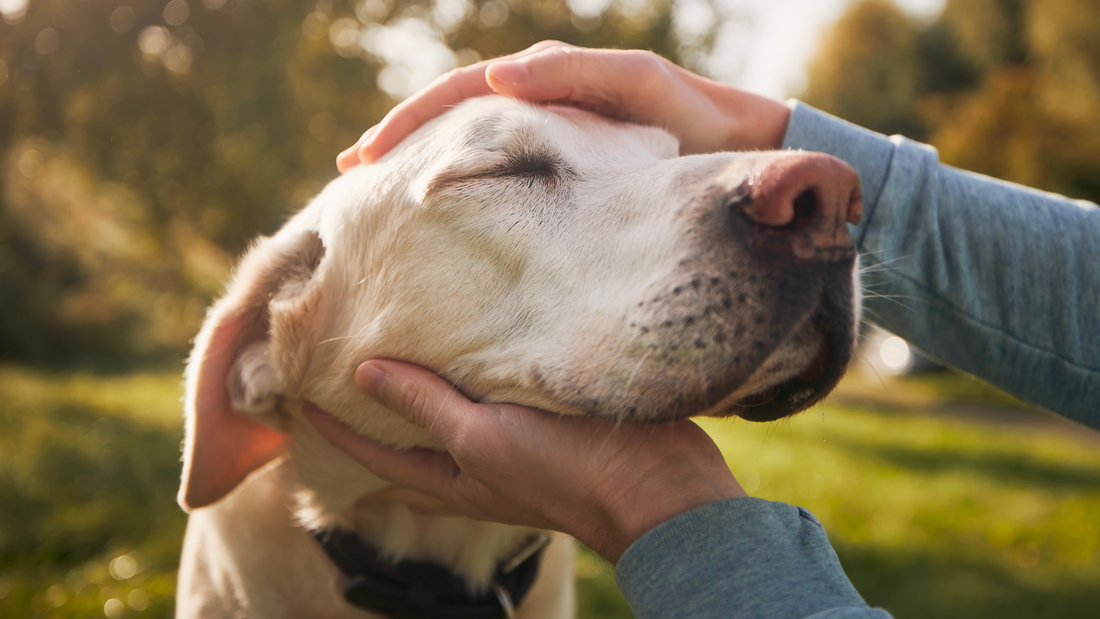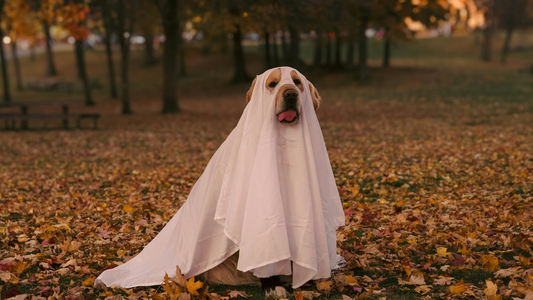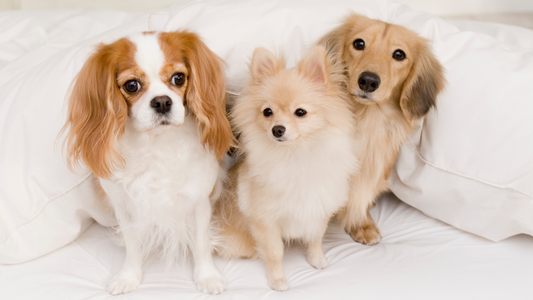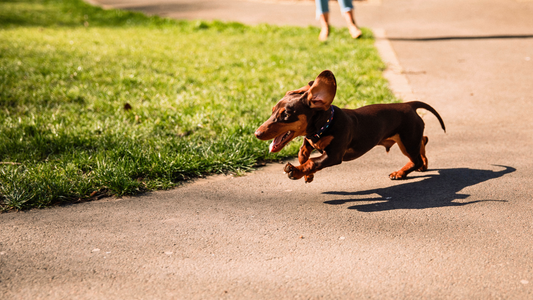When your dog is diagnosed with cancer, it can feel like the ground has shifted beneath your feet. But here's the comforting truth: you have the power to make a profound difference in their journey.
The good news is that there’s a lot you can do to support your dog’s health—both to prevent cancer and to help them thrive if a diagnosis ever comes.
By embracing a holistic approach—nourishing their body with fresh, anti-inflammatory foods, encouraging joyful movement and sniff-filled adventures, reducing stress, and limiting exposure to toxins—you can strengthen your dog’s immune system, support their overall well-being, and give them the best chance at a long, happy life.
Nourishing from the Inside Out: The Power of Fresh, Whole Foods
Nutrition is the cornerstone of health, especially when preventing or facing cancer. We get it—most dog owners feed kibble. It's convenient and has been cleverly marketed to us for years.
However, Dr. Ruth Roberts, a holistic veterinarian, emphasizes the importance of whole, minimally processed foods to combat chronic inflammation and support the immune system. She says it's a key step in both preventing cancer and strengthening resilience. Even small additions, like a spoonful or pureed pumpkin or steamed broccoli, can make a significant impact.
Dogs don’t have the enzymes to break down the tough fibre walls of raw vegetables, so it’s best to boil or steam them to make the nutrients more accessible. For small dogs, blending or pureeing these veggies helps with digestion, while larger dogs can often enjoy them chopped or lightly cooked.
For dogs already diagnosed with cancer, nutrition can play an even more vital role. Cancer cells thrive on glucose, so feeding foods that stabilise blood sugar and increase alkalinity may help create a less favourable environment for cancer growth. Nutrition is a powerful ally in your dog’s healing journey and should be considered alongside their treatment plan in consultation with your dog’s oncologist.
Fresh foods not only boost vitamins and antioxidants but also feed the microbiome—those friendly gut bacteria that help regulate immunity, reduce inflammation, and even influence mood.
Let Them Be Dogs: The Healing Power of Nature and Play
Just as nutrition feeds the body, daily experiences feed your dog’s mind and spirit—and this matters for both prevention and supporting dogs with cancer. Dogs are happiest when they can do what they love: sniffing, exploring, running, or simply lounging in the sun. These activities aren’t just fun—they reduce stress, lower inflammation, and help balance hormones, which can even influence how their bodies respond to illness.
Dogs are remarkably sensitive to our emotions, so managing your own stress is just as important. Gentle acupressure, deep breathing, or even short meditation sessions while your dog is nearby can help calm both of you. Dr. Ian Dunbar and Dr. Odette Suter highlight how reducing stress supports a dog’s immune system and overall vitality, making them more resilient to health challenges. Even short daily walks in fresh air, sniffing around at their own pace, or a few playful sessions in the yard can make a real difference.
By creating a calm, stimulating environment, you’re supporting your dog’s mental and emotional wellbeing while also giving their body the best chance to prevent illness or respond positively to treatment. Remember, the little things—extra sniff breaks, quiet cuddle time, or gentle massage—add up, building a supportive routine that nurtures both body and mind.
Reducing Toxic Overload: A Cleaner, Safer Environment
Our dogs live in the same world we do—and unfortunately, that world can be full of invisible toxins that may contribute to inflammation and disease. From pesticides and chemical run-offs in soil and water to industrial pollution in the air, many environmental toxins are beyond our control. Everyday chemicals in our homes, like paints, varnishes, fire retardants, scented candles, air fresheners, and cleaning products, also add to the load.
Even small exposures can accumulate over time, quietly stressing a dog’s system.
The good news is that there are plenty of steps we can take to reduce toxic overload. Choosing non-toxic cleaning products, avoiding heavily scented candles or air fresheners, opening our windows and airing out daily, and limiting processed foods and additives in your dog’s diet can make a real difference.
Simple habits like washing your dog’s paws after walks, providing filtered water, and using natural bedding or toys can also help lower daily exposure.
While we can’t control everything—like pollution from nearby roads or chemical run-off in waterways—focusing on the areas we can influence gives our dogs a cleaner, safer environment that supports their overall wellbeing and strengthens their natural defenses.
Building a Healing Partnership
Facing a cancer diagnosis in your dog is stressful, overwhelming, and often heartbreaking—and it’s completely normal to feel anxious, uncertain, or even guilty. Give yourself some grace. You’re doing your best for a companion who depends on you, and acknowledging your own emotions is part of caring for them.
A strong healing partnership involves balancing conventional medicine, like chemotherapy or surgery, with holistic approaches such as nutrition, massages, accupressure etc. Feeling confident in your care team—asking questions, seeking second opinions, and understanding the reasoning behind each treatment—can help you navigate this journey with clarity and calm.
For those facing a more challenging prognosis, it’s natural to feel grief or fear. In these moments, the focus shifts from “curing” to cherishing: filling each day with love, joy, and meaningful connection. Gentle walks, playtime, cuddles, or simply sitting together in peace are powerful ways to nurture both your dog and yourself.
Every small, intentional act of care creates comfort, strengthens your bond, and ensures that your dog’s final months or weeks are filled with warmth, dignity, and the love that will last far beyond their lifetime.
And when the time eventually comes, we hope our Coping with the Loss of a Pet article can offer gentle support and guidance to help you navigate grief while honouring your dog’s life.
Note: Always consult with your veterinarian before making significant changes to your dog's diet or health regimen.
Want to be the first to get your paws onto the hottest topics? Subscribe to our newsletter!
--------------------------------------------------------------------
The Doggy Grub blog is dedicated to helping dogs and their owners achieve happier, healthier lives, changing the way we feed our dogs one bowl at a time! If you would like to know more about our fresh food head to Doggy Grub
